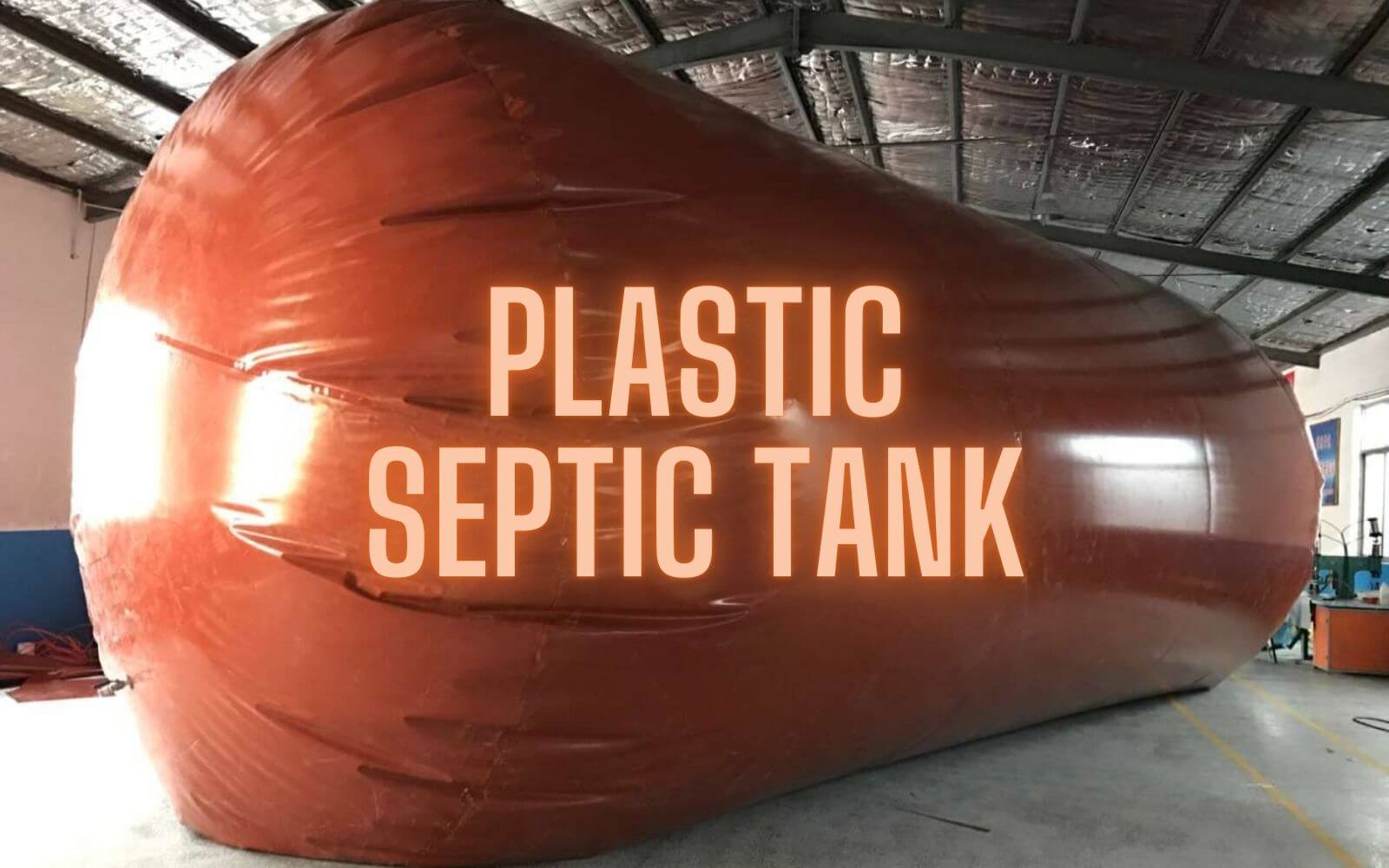PLASTIC SEPTIC TANKS
During the wastewater management, innovation is key to ensuring systems are not only efficient but also adaptable to various environmental and spatial challenges. One such innovation that is making waves in this field is the flexible plastic septic tank. While traditional plastic septic tanks have long been the go-to choice, flexible PVC options are rapidly gaining popularity due to their unique benefits. In this article, we’ll explore how flexible PVC septic tanks are revolutionizing wastewater management and why they might be the ideal solution for the treatment.
Septic tanks have been a crucial component of wastewater management systems. Traditionally, these tanks have been constructed from materials like concrete, steel, or rigid plastic. While these materials have served their purpose, they come with certain limitations.
Concrete tanks:
For example, are heavy and require significant labor and machinery to install involved, also when damaged happened, it’s difficult to repair.
Rigid plastic septic tanks:
Though lighter, can still be cumbersome to transport and install, and they are not easily to adapt to limited site, as the rigid plastic tanks used the fixed molds, most of time, they can’t do customization.
The flexible plastic septic tanks:
a modern solution designed to overcome the challenges which posed by traditional materials. These tanks use durable, flexible polyvinyl chloride (PVC) that allows them to be easily customized by the designs and shapes, and easy to fold when not in used, then simply transported, and installed. Their flexibility and adaptability are what set them apart from standard plastic septic tanks.
Customization and Adaptability
One of the most important features of flexible plastic septic tanks is their ability to be customized to fit specific needs and spaces.
Unlike traditional plastic septic tanks, which come in predetermined sizes and shapes, flexible PVC tanks can be tailored to the exact dimensions required for your site.
Whether you have a challenging terrain, limited space, or unique wastewater needs, these tanks design to meet those demands.
Ease of Transportation and Installation
The lightweight nature of flexible PVC makes these tanks much easier to transport and install compared to their rigid plastic counterparts.
Traditional plastic septic tanks, while lighter than concrete, still require careful handling and equipment for installation. And the packing size is huge.
In contrast, flexible PVC tanks can roll up and packing in small carton for transportation easily, and the installation with minimal labor and machinery. This ease of installation not only reduces labor costs but also accelerate the procedures, making it an attractive option for both contractors and DIY enthusiasts.
Durability and Longevity
Despite their flexibility, PVC septic tanks are incredibly durable. They are resistant to corrosion, cracking, and damage from environmental factors such as UV rays.
This makes them a long-lasting solution for wastewater management indoor and outdoor, often outlasting traditional plastic septic tanks.
Their durability ensures that once installed, they require minimal maintenance, saving you time and money in the long run.
Eco-Friendly and Sustainable
Flexible PVC septic tanks are also an environmentally friendly option. The production of PVC has a lower environmental impact compared to other materials, and the flexibility of the tanks allows for better use of space, reducing the overall footprint of your septic system.
Additionally, flexible PVC tanks are made from recyclable materials, further contributing to their sustainability.
Cost-Effective
When considering the total cost of a septic system, flexible PVC tanks often prove to be more cost-effective than traditional septic tanks.
The lower transportation and installation costs, combined with their durability and longevity, mean that you save money not only upfront but also over the lifespan of the tank.
This makes them an economical choice for homeowners and businesses alike.
Flexible PVC septic tanks are suitable for a wide range of applications. They are particularly advantageous in situations where traditional plastic septic tanks might fall short.
For example:
Remote or Difficult-to-Access Locations:
Their lightweight and flexible nature make them ideal for sites that are difficult to reach with heavy equipment.
Custom-Shaped Spaces:
If your site has irregular dimensions or requires a non-standard tank shape, a flexible PVC septic tank can be customized to fit perfectly.
Temporary Installations:
For temporary sites or events, these tanks can be easily installed and removed as needed.
Flexible PVC septic tanks represent a significant advancement in wastewater management technology. Their adaptability, ease of installation, durability, and cost-effectiveness make them a superior alternative to traditional plastic septic tanks.
As the demand for more efficient and sustainable solutions grows, flexible PVC septic tanks are poised to play a key role in the future of wastewater management. Whether you’re planning a new installation or upgrading an existing system, considering a flexible PVC septic tank could be the smartest decision you make.








